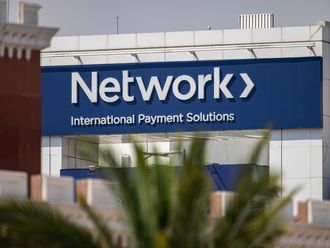
Dubai: National Bank of Ras Al Khaimah (RAKBank) has made a consistent turnaround in profits, asset quality and asset mix following serious impairments it suffered in 2014-15 from its small and medium enterprise (SME) portfolio, Peter England, CEO of the bank told Gulf News in an Interview.
“In 2015 we had a major crisis in the SME market. RAKBank being the biggest business banks in the country then, we suffered a difficult time. Our main exposures were in SME segment. So when the SME market pretty much collapsed, the bank had high provisions. That is the time we decided to tweak our strategy a bit and diversify its portfolio,” said England.
Historically RAKBank has always been a product centric bank with offerings such as credit cards, personal loans and SME lending comprising a relatively high risk loan book with SME portfolio topping the risk ladder.
Following the SME debacle and the high impairments that followed, the bank took a conscious decision to rebalance its financing portfolio. “It was not about leaving the SME market but was more about growing into wholesale market, which the bank had not been active for the past 20 years. So we started to build a corporate a lending book. We also started to actively pursue lending to other financial institutions,” said England.
As part of the transformation the bank built treasury capabilities which it hadn’t had to a great extent, prior to 2014. In essence the bank started to diversify its income stream.
The challenges of the SMES sector was so significant that in 2015 – 16, the bank’s profits fell dramatically. From then on the bank has seen progressively improving its profits. “A combination of few things helped our recovery. One is the diversification strategy. We may still have some challenges in SME, our corporate book is very strong, so is treasury. The SME portfolio itself has improved significantly because the bank has changed the way it lends to that segment,” England said.
Currently the bank does a lot more research to the company’s background and financials before loans are approved. It now lends more for traditional trade and working capital type of lending rather than the four-year term lending that the bank used to do.
In the first quarter of 2019, the bank reported a consolidated net profit of Dh270.2 million, up of 31.7 per cent year-on-year and by 10 per cent on the previous quarter.
Total income for the first quarter 2019 exceeded Dh1 billion, up 8.5 per cent on a year-on-year, which is only the second time in RAKBank’s history the bank has achieved. The results showed a very strong fee income component in the latest quarter with a steady rise for the past 13 quarters directly linked to the bank’s diversification of income streams.
The change in the mix of business, partly explains why the net interest income growth is not very strong. It is gradually picking up again. “It dropped 7 to 8 quarters ago when we had to downsize some of our higher risk lending, but now we are in a position that even our net interest income is growing,” said England.
Asset quality
The bank expects to see continuous improvement in asset quality that it has been experiencing for the last 10 quarters. “We had some blips, ups and downs. But typically, because of timing. I expect asset quality for us to gradually improve in the next 3 quarters. For us 2019 and 2020 is looking good,” said England.
He does not expect any big impact from the adoption of IFRS 9 [International Financial Reporting Standards] and the related loan classifications. “We have a relatively small wholesale book which is where the banks are likely to have more impact. In our case some of our consumer book and some of our SME book is already provisioned on a bucket (classifications on stages of loan impairments) scenario,” he said.










